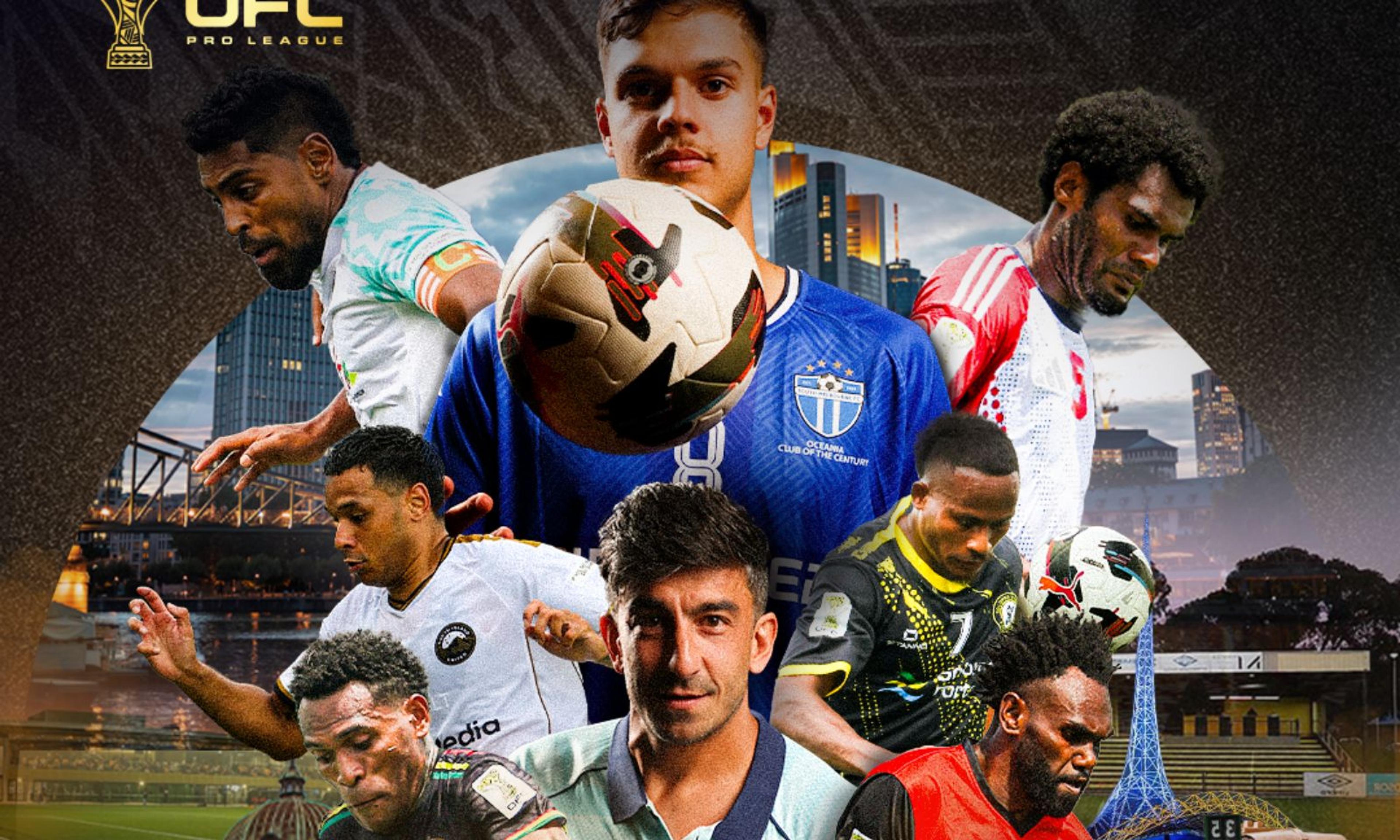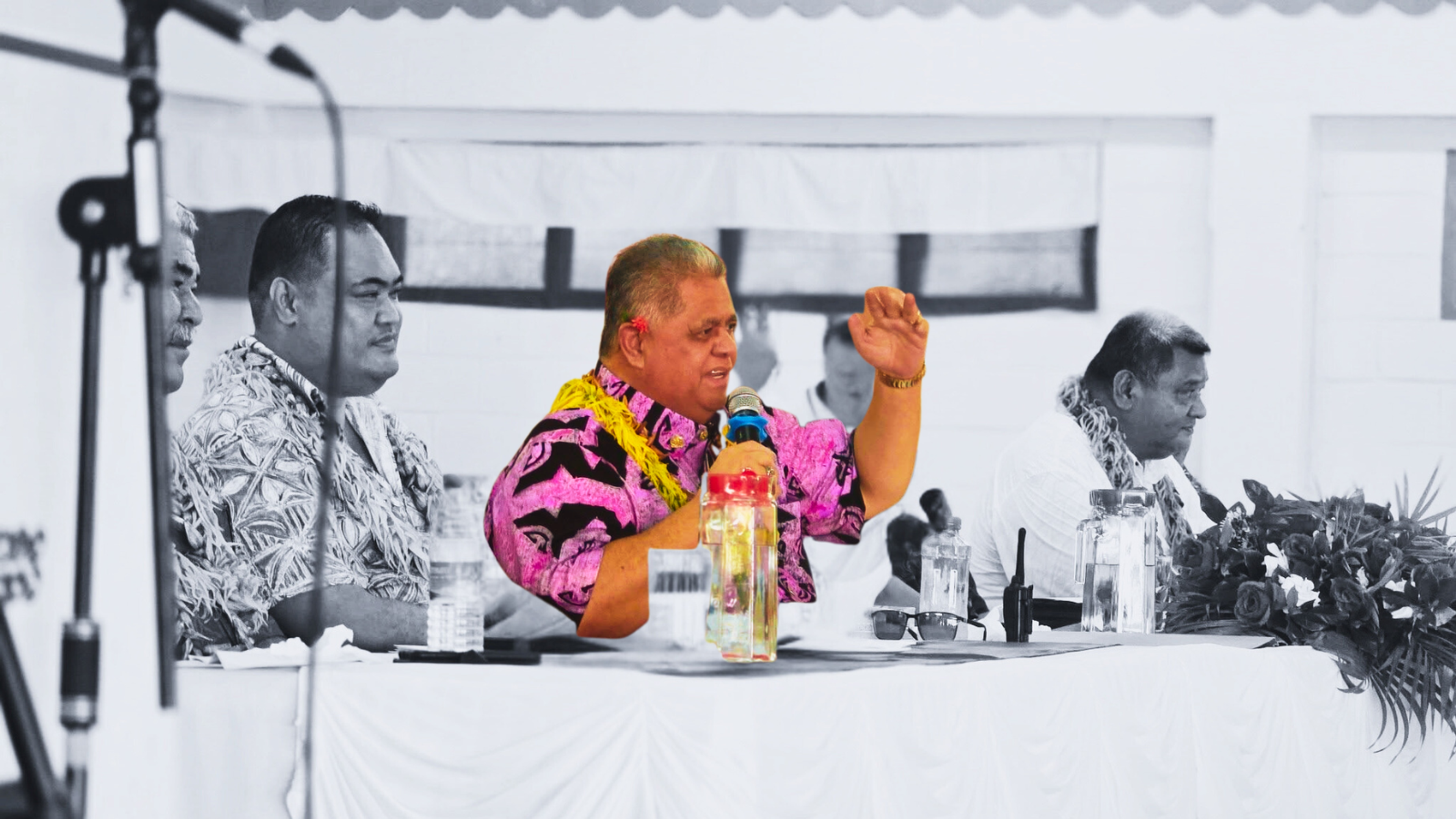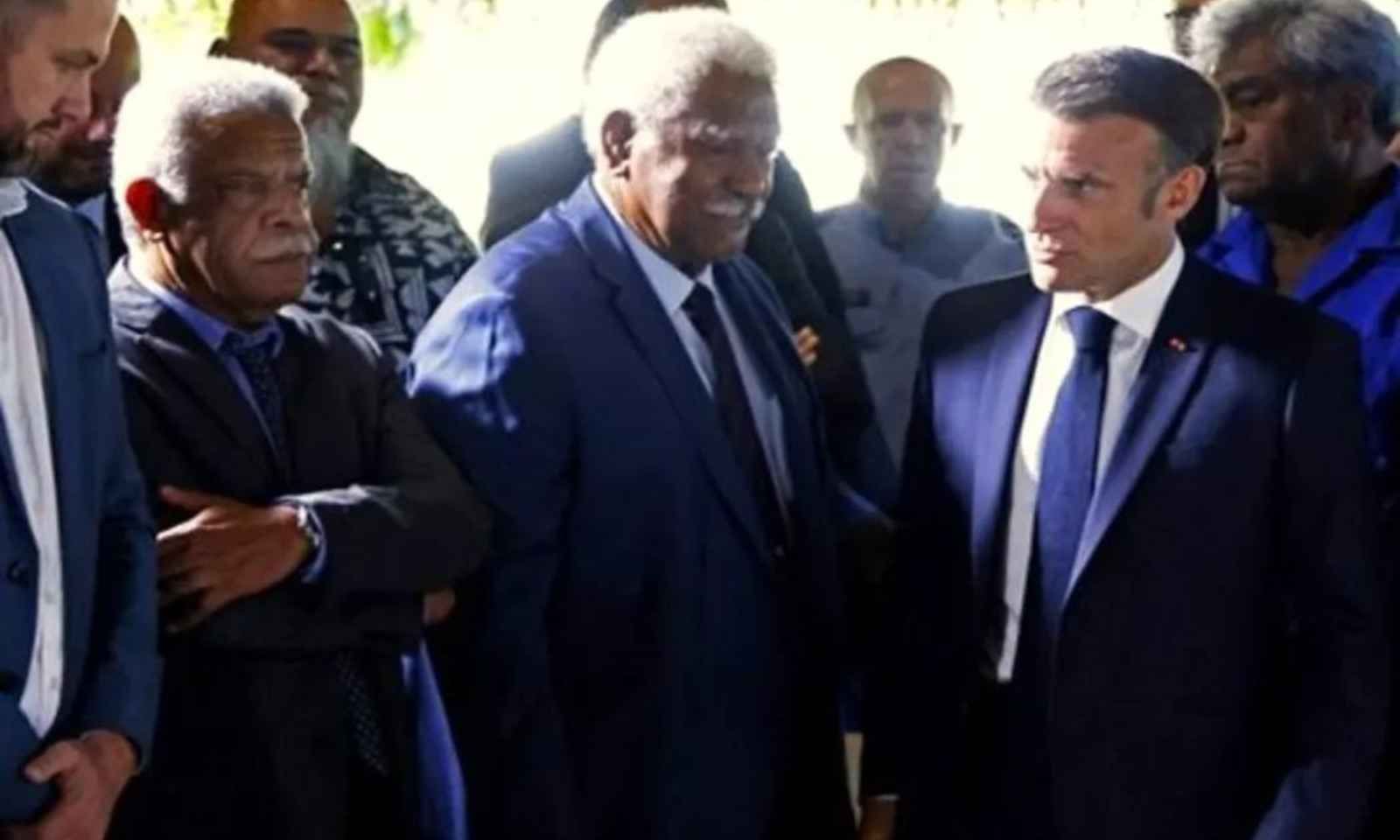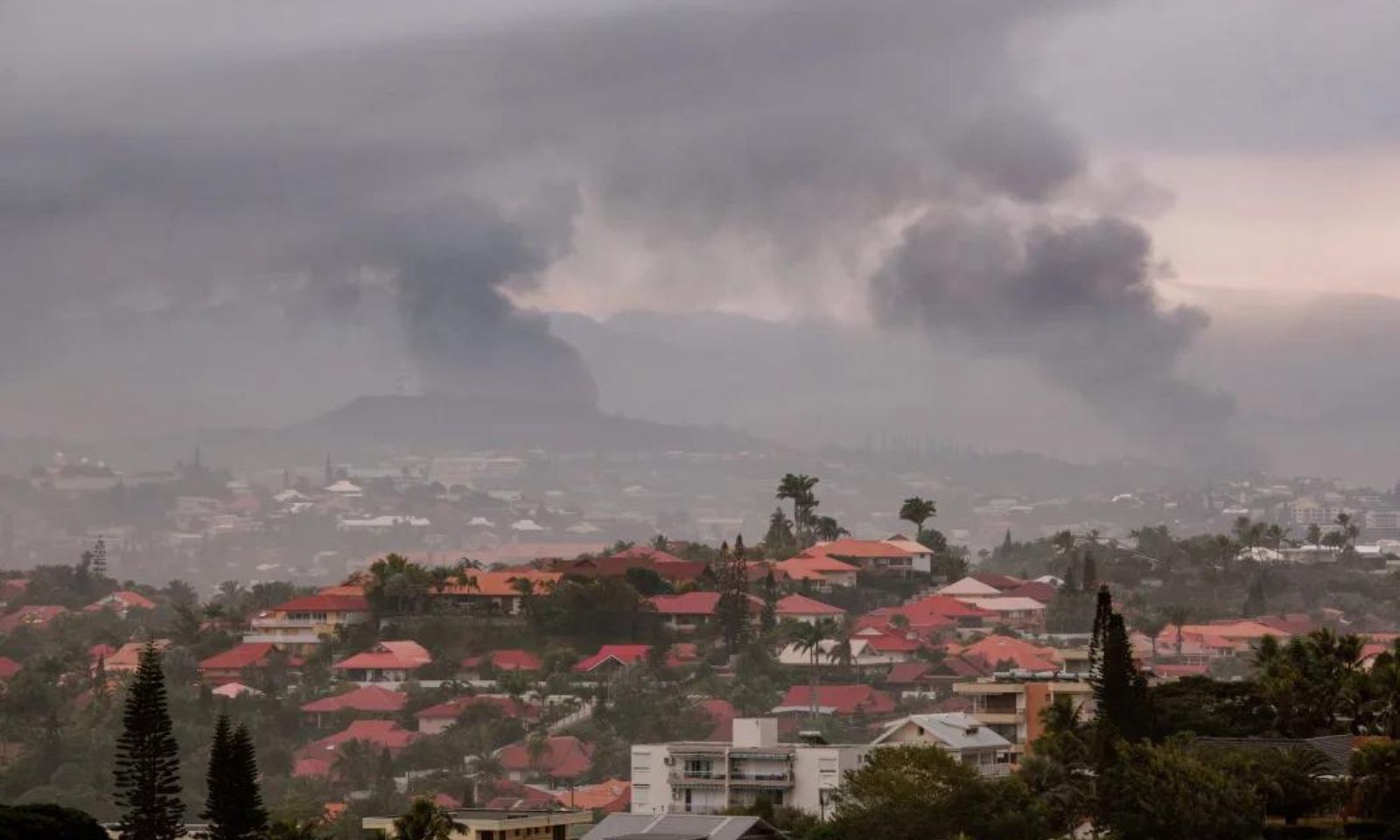

Tens of thousands of pro-independence supporters with Kanaky flags gathered on Nouméa's Coconut Square on Saturday 13 April 2024.
Photo/NC la 1ère
Why the indigenous Kanaks want France out of New Caledonia
A pro-independence leader warns President Emmanuel Macron must scrap his plans to change the voting rules in the French territory if he wants the protests to end.




New Zealand-United States minerals talks spark concerns over Pacific seabed mining




New Zealand-United States minerals talks spark concerns over Pacific seabed mining
While electoral reform is behind the unrest in the French Pacific territory, a pro-independence leader says the indigenous Kanak people are fighting to right a wrong of decades of widening inequality.
Jimmy Naouna, the political leader of the Kanak and Socialist National Liberation Front (FLNKS), says France President Emmanuel Macron’s visit to riot-torn Noumēa last week failed to find a common vision for New Caledonia’s future.
At least seven people have died since the 13 May protests, five were pro-independence supporters - two of which were young men, Naouna said.
“We are going through a struggle, a 30, 40-year struggle. What’s happened today is almost 40 years to the day of what happened in the 1980s, 1984, when civil war broke out,” he told Pacific Mornings’ William Terite.
Watch Jimmy Naouna’s interview below.
“This is almost becoming a cycle in the political life of New Caledonia until we address this political issue, this decolonisation issue.”
Indigenous Kanaks have been calling for independence and Naouna said they felt betrayed by Macron and his government after the French parliament agreed to give thousands of non-Kanaks voting rights.
He said the move went against the Noumēa Accord, signed in 1988 when France promised to allow the territory to gain independence after 20 years.
He also said Macron’s move to replace the agreement would dilute the indigenous vote and undermine their struggle for independence.
Naouna said it was not the fault of the supporters of the pro-independence movement because they did not call for this violence.
The political unrest entered its third week as the Indigenous Kanak protesters called on Macron to back away from his plans for electoral reform in the French territory if he wanted the protests to end.
Hundreds of people were injured with damage caused by the 13 May riots, the worst in 40 years, estimated in the millions of dollars.
A state of emergency, imposed on 15 May, ended on Tuesday but the curfew (6pm-6am local time) remained as evacuation flights returned stranded New Zealanders home.

French President Emmanuel Macron, right, meets with New Caledonia leaders during a visit to Noumēa last week. Photo/supplied
Naouna said while life is slowly getting back to normal in the capital, there is tension in the air.
“It's not only a political crisis. This stems back from several years before we came to this situation. It all adds up, you know, just coming out of the Covid crisis. And then we got hit by the nickel industry crisis. People lost their jobs. Then this electoral reform bill. There's a lot of social injustice.
“Most of these youth at the barricades are unemployed, so somewhere there's a social crisis adding up to the economic crisis and the political crisis on top of that. So it's all come to the surface now, which has been boiling for years.
“So over the past 10, 20 years, there's been a lot of money pulled into the country, about 1.5 billion US dollars. But these youth have been left out of the whole development process and opportunities. So what's happening on the streets today is all these factors adding up together.”
Macron said the French troops would remain in New Caledonia “as long as necessary”.
About 3000 soldiers have been sent from Paris since the violence began and could stay until the Olympic Games in Paris, which begin on 26 July, Macron told journalists in Paris.
But Naouna said this would only further destabilise New Caledonia and marginalise the Kanak people.
“Macron has announced he will be sending in more. We heard that another 400-contingent was also sent in. That's not the way to handle this situation. You can send in 10,000 troops but that won’t solve the problem.
“This is a political issue, it needs a political solution. And the way they are doing it is just putting more fuel on the fire, just keep turning into eruption.
“We are still going through a decolonisation process. New Caledonia is being recognised by the UN as a non-self-governing territory. We are listed with the UN decolonisation committee. It's an achieved process.”
He has accused Macron of “siding with the non-independence movement here”.
Naouna said up to 300 pro-independence supporters were arrested with some of them placed under house arrest.
He said five of those killed were FLNKS supporters, including two youths shot on the streets of Noumēa.
He said they were disappointed at some countries in the region, including New Zealand and Australia, who have “not spoken out against France’s militarisation of our country and the way the French government is handling the situation”.
While the Pacific Islands Forum and the Melanesian Spearhead Group have issued statements calling for peace, Naouna said he wanted “our neighbouring countries to be more active in monitoring the situation.
“New Zealand and Australia can play a leading role in that. They're sending aircraft to pick up their nationals and fly them out. But we need to see more proactive involvement and engagement of our countries in the region.
“They need to step up and call on the French government to handle the situation properly.”
France has lifted the TikTok ban, imposed on 15 May, in New Caledonia.

Smoke was seen from a residential area in the capital Noumēa where rioting and looting took place following protests against France's electoral reforms. Photo/supplied